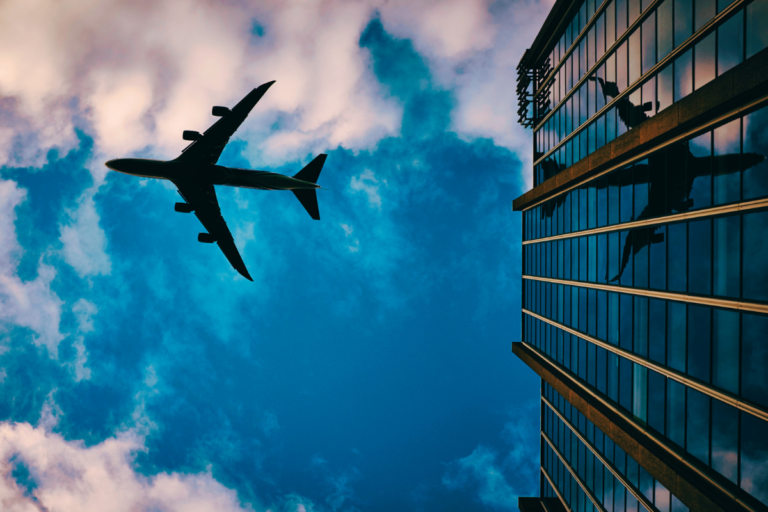The world never stops changing. And the last few years have been absolutely extraordinary.
In the travel sector, the pandemic brought so much change, in such a short space of time, that returning to normal seemed impossible. And in some ways – normal, as we remember it, doesn’t exist anymore.
There are new challenges ahead, and adapting to them might not be straightforward.
Current staffing crisis
One of those challenges is the shortfall in talent. And it’s not just TMCs facing labour shortages; the entire sector is struggling to meet the demands of customers and corporate clients now that travelling for work and leisure has largely resumed.
In a time of reduced staff numbers, retaining or even retraining existing talent would seem paramount. But, in the UK, industrial strike action across rail, tube, bus, and air travel has continued to make headlines. Some of the reasoning behind the strikes is workers being spread too thin – compromising safe working conditions.
There just aren’t enough people to go around.
And while that’s having a massive impact right now, we’re interested in the future implication. What do the next five years look like for business travel and the technology that drives it?
A greater reliance on automation and AI
With fewer people available to work since Covid, business travel software has stepped up to fill in as many of the gaps as possible. But what started as simple rules and commands, being executed automatically by software, has now become machine learning – a branch of artificial intelligence (AI) that is making the world less reliant on human input.
You are probably aware of AI tools that create astonishing works of art or Google’s LaMDA project which convinced one engineer that it was a living, sentient being – but will this tech leak into service and travel industries?
Well, it sort of already has in the form of chatbots. While these don’t yet pass for humans, Google’s LaMDA could change all of that. For now, tools like HotelHub continue to push ahead with machine learning (ML) and deep automation to drastically reduce monotonous workloads like searching, data entry and even hotel reshopping, reducing the burden on dwindling staff numbers at TMCs in the future.
Why? Because the reality is that staffing issues could get worse before they get better. It’s likely that the gap in training and experience will take years to fill – and we predict that the entire travel sector will lean heavily on AI and automation technology to bridge that gap.
Sustainable travel
While it’s not a new trend, environment, social and governance (ESG) compliance isn’t going anywhere. In light of the record temperatures set in 2022, you’ll likely see a lot more talk of sustainability in the travel sector.
Of course, the conversation around climate has been ongoing for decades now. But real, measurable action could be less likely – and this is down to the fact that travel (and in particular, air travel) is a major source of carbon emissions.
Planes are nowhere near becoming electrified – and even if they were, electrical power generation still relies on coal, oil and gas. There’s a lot of work to do and it’s not all going to be done within the next five years.
So, as travel becomes more at odds with climate change, businesses keen to reduce their impact will invariably change their travel habits. In the next half of the decade, we could see greater uptake of services like sleeper trains in Europe, less frequent trips and a continued development of bleisure travel at carbon-conscious companies.
What about carbon offsetting?
Companies can purchase carbon offsets – a credit system that rewards positive climate action, like planting trees – to mitigate their current emissions. But there is a twofold problem with offsetting:
- the company doesn’t actually have to change any of their negative actions
- carbon offsetting is cheap and so failure isn’t taken seriously.
Some companies think that carbon offsetting should be much more expensive, effectively giving it greater perceived value – and an incentive for projects to work. So, the next five years could see a hike in the price of carbon credits.
That might make carbon offsetting prohibitive for smaller organisations.. Still, in the grand scheme of things, offsetting projects don’t reduce the carbon emissions entering the atmosphere – they just move it temporarily.
Business travel in the metaverse: the next frontier?
The debate on sustainable travel will rage on, but what if we could sidestep physical travel, without sacrificing the experience? Could business travel shift into a second, virtual world?
Companies like RendezVerse are jumping in headfirst – creating virtual copies of venues that will allow meetings to take place in uncanny virtual simulations. Their reasoning is to reduce unnecessary site visits and environmental impact.
Sounds great, but right now, the whole metaverse thing is half-baked at best. And with the enormous amount of computational power required to run this ‘second virtual world’, energy consumption (and carbon emissions as a result) would skyrocket.
The blockchain
When you hear the term blockchain, you probably think ‘Bitcoin’, but the tech has more going for it than cryptocurrency.
Major travel companies are adopting blockchain technology for everything from tracking luggage to identifying passengers – and some platforms claim to be eradicating lost or inaccurate hotel bookings by recording all entries on the blockchain’s ledger.
While we might not be buying everything with Bitcoin anytime soon, blockchain tech is already disrupting the travel industry and this is likely to continue.
Biometrics and SSI
The security enhancements and traceability that blockchain offers are still reliant on a verifiable identity and, right now, biometric data and self-sovereign IDs (SSIs) are being adopted by more organisations.
One of the key benefits of this is instant, verified identification – making travel friction-free. It also offers enhanced data security and faster processing in the event of delays or cancellations.
This has the potential to disrupt the hospitality and travel industry in a much shorter timeframe, and may be welcome news for travellers overwhelmed by the current state of travel cancellations and delays. Paired with unbreakable blockchain tech, this could become a pillar of security in the future.
Final thoughts
While stability might not be within sight just yet, it looks like attitudes are changing faster than technology right now. The world is still catching up from the effects of the pandemic and the next five years in business travel will reflect that.
Automation and emerging AI technologies will bridge the gaps in staffing soon. But people are yearning for more contact post-lockdown and a human touch is always going to be a vital ingredient in travel and services.
Whatever the future holds, we’ll be working to make it better for business travel – by developing our best-in-class hotel booking software and enabling TMCs’ hotel strategies.







